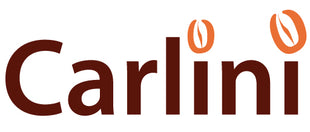Coffee Roasting Quality: Myths, Reality, and What Really Matters
Every coffee roaster claims their beans are fresher, better, or “hand‑roasted” for precision. But for experienced roasters, these marketing lines don’t equal true quality. Let’s cut through the fluff and talk about what actually defines quality coffee roasting.
The Myth of “Hand‑Roasted Quality”
-
Many roasters boast about hand‑roasting or “caring deeply” about their product.
-
Pride and passion are important, but they are not a quality system.
-
Without structured processes, consistency and flavor control are impossible.
Quality Control in Coffee Roasting
-
Large companies often have elaborate quality control systems, but these focus on consistency, not necessarily better taste.
-
Smaller roasteries often lack basic QC practices, relying on the roaster themselves to act as the quality controller.
-
In Australia, this is common: the person roasting is also responsible for QC.
The Problem With New “Specialty Roasters”
-
Many new roasters enter the industry with limited capital and minimal equipment.
-
Missing essentials: de‑stoners, pollution control, calibrated packaging systems.
-
Reliance on cheap monitoring tools (multimeters, probes, basic logging software) is not a quality system.
-
Enthusiasm and self‑belief are admirable, but without proper systems, results are inconsistent.
Why Consistency Is Hard to Achieve
-
Coffee beans vary by season, crop, and environment.
-
Factors like humidity, airflow, and ambient temperature affect roasting outcomes.
-
Manual “hand‑roasting” cannot easily compensate for these scientific variables.
-
True consistency requires automation, monitoring, and adjustment tools.
Carlini Coffee Company’s Approach to Quality
At Carlini Coffee Company, quality is not a slogan—it’s a system.
-
Engineer‑led roasting: Our roaster has 25+ years of manufacturing quality experience.
-
End‑to‑end quality loop: From sourcing green beans to roasting, degassing, packing, and delivery.
-
Weekly new coffee orders: Tested scientifically and in real café environments.
-
Blending expertise: Constantly evolving blends, tested and refined for consistency.
-
Proprietary automation tools: Developed over 18 years to remove variability and plan production.
-
Beta café program: 10+ high‑end cafés provide real‑world feedback before new coffees join our lineup.
ISO Certification vs. Industry Agility
-
ISO certification ensures structure but can reduce flexibility.
-
Coffee is a dynamic product: crops change, customers’ palates evolve.
-
Example: café customers often request new blends simply because they want variety.
-
ISO systems struggle to adapt quickly to these realities.
-
Instead, we’ve built tailor‑made quality initiatives that suit the coffee industry’s unique challenges.
Key Takeaways for Coffee Lovers and Buyers
When choosing a coffee roaster, ask:
-
Do they have real quality systems or just marketing slogans?
-
Is their consistency based on equipment, knowledge, and experience?
-
Do they adapt to seasonal changes and customer demands?
At Carlini Coffee Company, our commitment is clear: quality is a continuous loop, not a buzzword.

